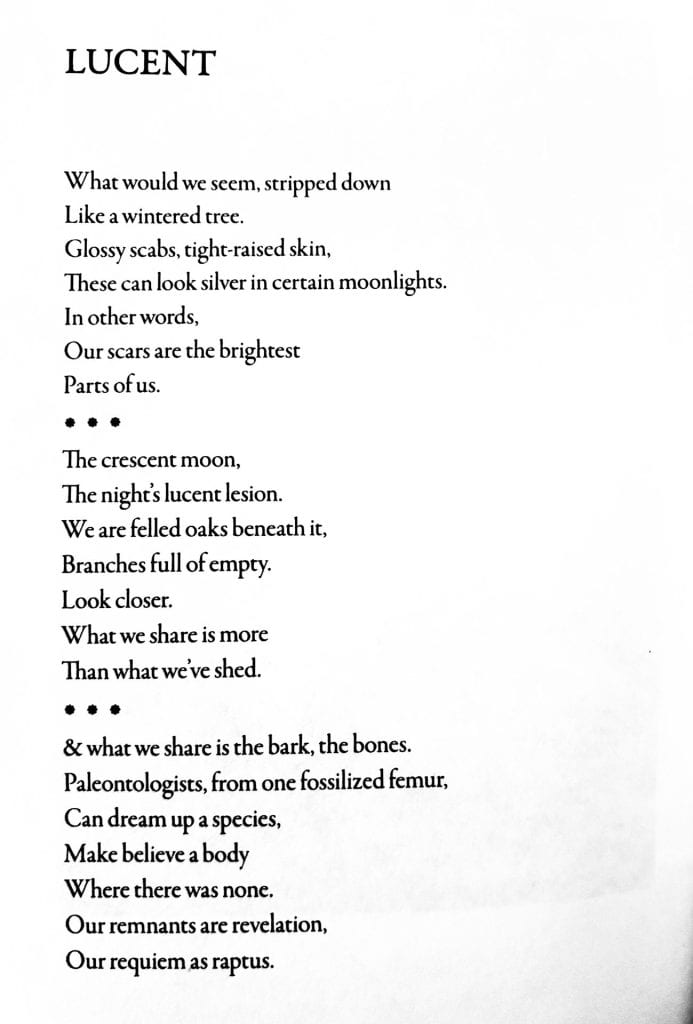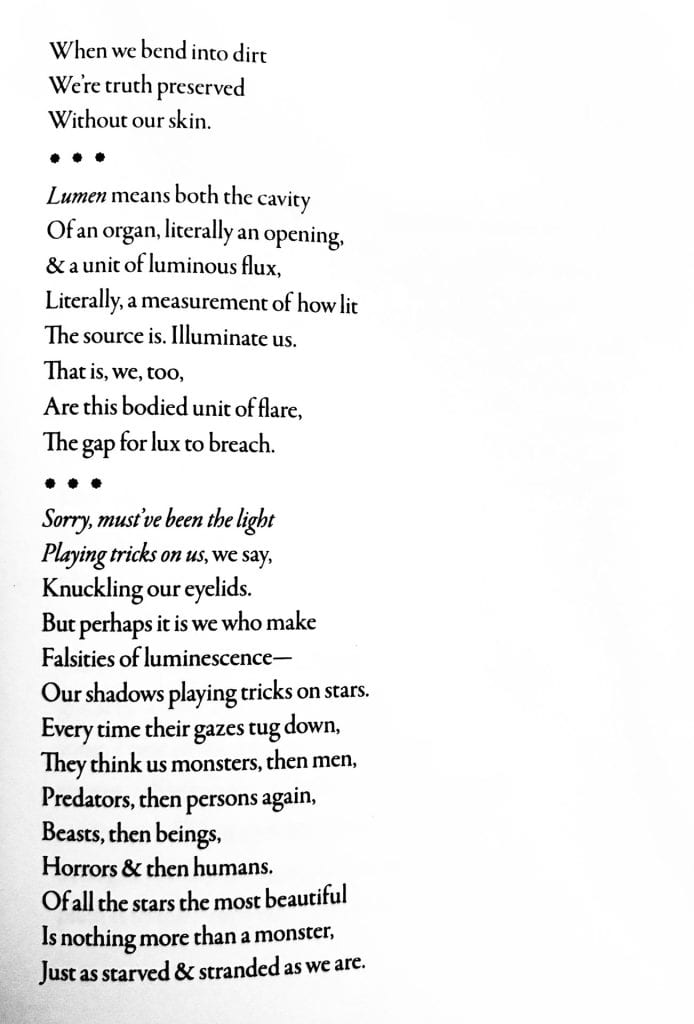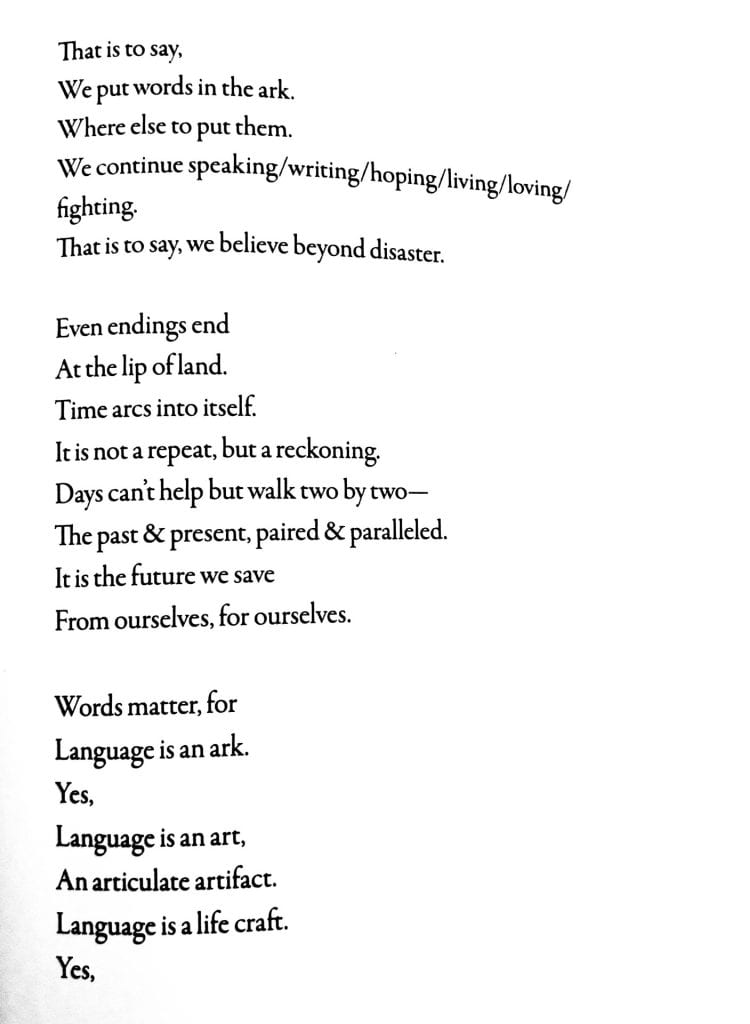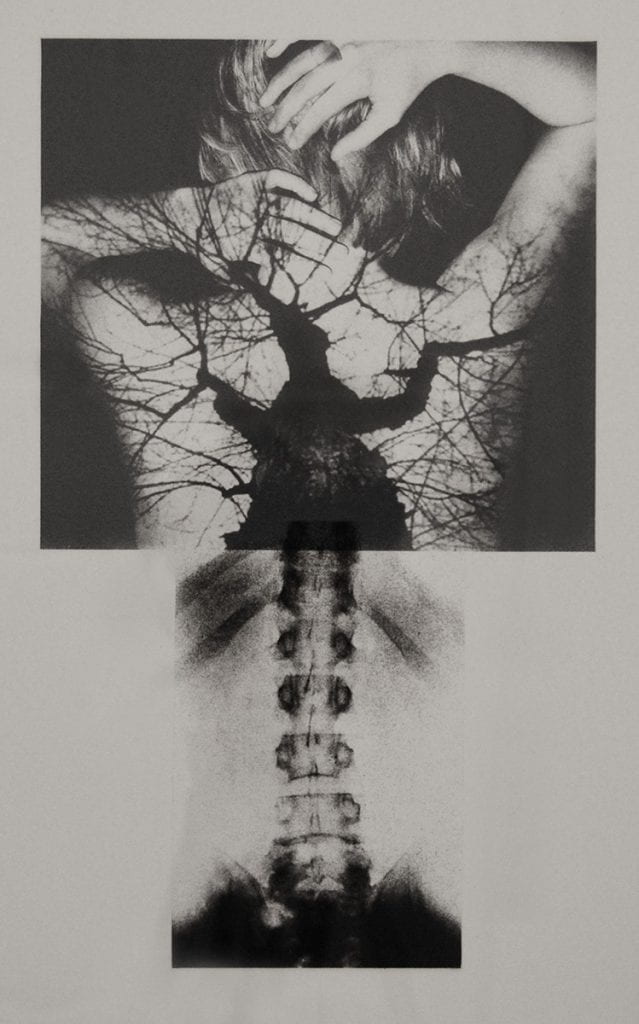Amanda Gorman: a Triptych


“Lucent” by Amanda Gorman took me numerous reads to comprehend fully. The piece presents a philosophy that humans are not defined by their living body: but rather by our shared ability to shine upon and beneath the earth. However, this is never clearly defined; her fantastical descriptions and lack of explanation of who exactly “we” is ensure this. The inclusion of analysis on the word “lumen” somehow left me more insecure in my understanding- Gorman uses the word to describe both the light that may fill us and our capacity to be filled. In addition, the beginning and end of the poem lack a clear connection, or at least one that I could pick up on easily. As the poem wraps up, the last section does a good job of grounding. Reminding the reader of their humanity after the fantasy they’ve been provided. This is done using a simple, recognizably human phrase: “Sorry, must’ve been the light.” However, Gorman immediately jumps back into her outlandish proposal, begging the question: are we the ones who are confusing to understand?

“Anonymous” by Amanda Gorman is displayed engraved within a black face mask. This silhouette, now a universally recognized icon, immediately sets the parameters for all this poem needs to tell. It’s allowed to remain the length that it does (short and sweet) because the reader is more focused on their personal relationship to that mask. Gorman uses simplistic rhymes, allowing the poem to flow quickly. Further, every line begins with a “W” sound. This is not to say it is basic by any means; strong descriptive techniques and hopes for what could have been draw the reader into an emotional connection with the piece. In general, I find this poem easy to understand for its easily relatable content and compelling repetition.




“What We Carry” by Amanda Gorman takes on a narrative style, describing the realization that there is so much beauty in the simple. That the words we speak, no matter how basic, form who we are as people, and how we care for others. The task of existing in both joy and misery is vital in preserving the world as we know it. She speaks less so of the society of the world- but rather of the physical earth we walk upon every day. Gorman reaches out to the most basic, childlike desires of the reader. Simply sitting on the ground, taking in the lovely and disgusting parts of our surroundings. It’s entertaining, led along by a common thread. The language is not particularly demanding, nor does she delve into the deeper meanings of things. It’s meant to remain basic and be appreciated as such.
Amanda Gorman’s background reveals itself repeatedly, in different ways, throughout her writing. One of the most interesting facts I discovered whilst researching her past was that until the age of 20, she struggled with a speech impediment, a consequence of her premature birth. Gorman declares that she learned how to speak properly through poetry, a medium that demands emphasis on syllables, sound, and pronunciation. As a Harvard graduate, her detailed understanding of language and ability to apply it to the broader concepts she constantly publicly advocates for is astonishing. Gorman became the youngest inaugural poet of all time in 2021, at 22 years old, ushering in the Biden administration. She’s repeatedly stated she plans to run for officer herself in 2036. (https://www.biography.com/writer/amanda-gorman)
Word Count: 564

Ben Lewis Giles (https://benlewisgiles.format.com/20152016#12)

